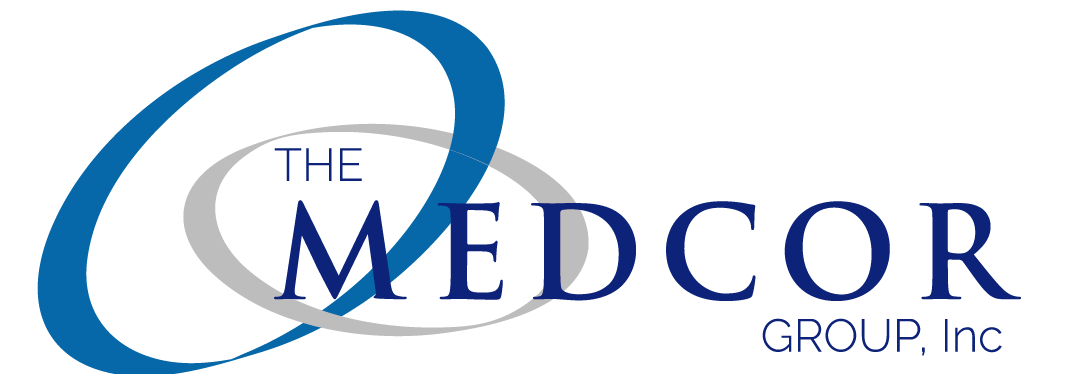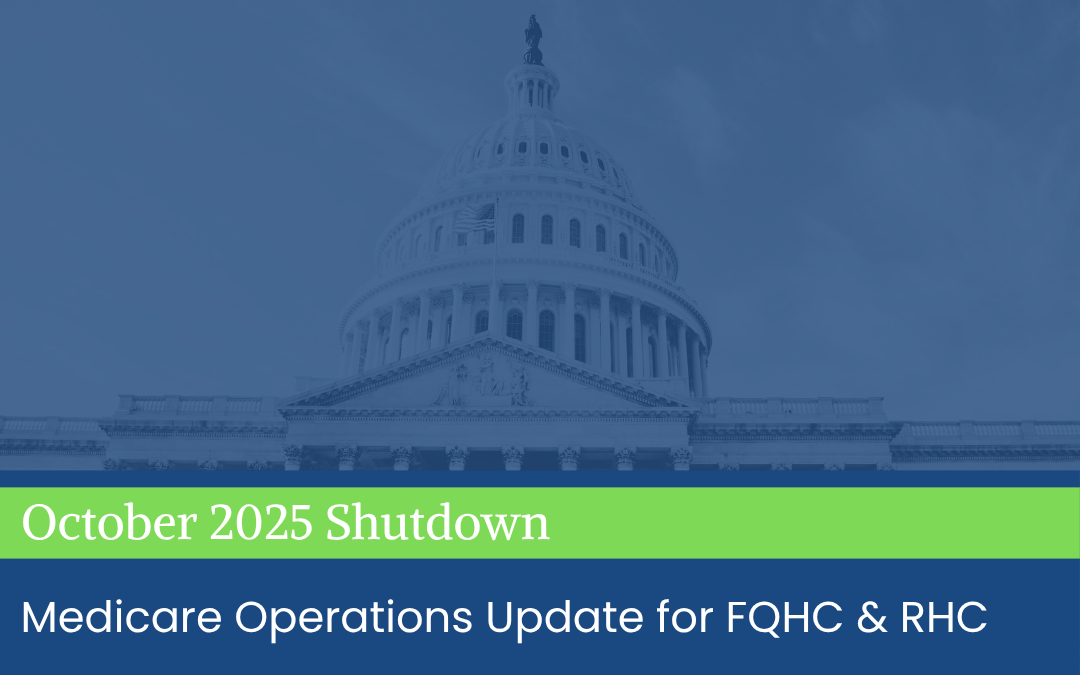The October 1, 2025, federal government shutdown is affecting Medicare operations for Federally Qualified Health Centers, including a temporary hold on claims payments and the end of key telehealth flexibilities for non-behavioral services. What you need to know:
Temporary Medicare Claims Hold
What’s Happening:
- Because Congress did not renew certain Medicare payment provisions (“extenders”) before the new fiscal year, CMS instructed all Medicare Administrative Contractors (MACs) to begin holding fee-for-service claims on October 1, 2025.
- The hold can last up to 10 business days and is a standard step to avoid reprocessing claims if Congress passes payment legislation after the deadline.
- Providers may continue to submit claims; however, payments will not be released until the hold is lifted.
FQHC Impact:
- Medicare payments are temporarily delayed beyond the usual 14-day payment floor.
- Wrap-around and Part B payments are included in the hold.
- Centers with heavy Medicare volume or limited reserves may feel short-term cash flow pressure during the shutdown.
Action Items:
- Continue submitting claims so they can be processed once the hold is lifted.
- Alert finance teams to expect a delay of approximately one to two weeks in early October.
- Monitor payment remittances daily and adjust cash flow projections until Congress acts.
Telehealth Flexibilities Expired October 1, 2025
What’s Happening:
- With no new congressional action, the COVID-era Medicare telehealth flexibilities for non-behavioral health services expired on October 1, 2025.
- Telehealth is now again limited mainly to rural shortage areas and generally not payable when the patient is at home.
- Some services, such as hospice face-to-face recertifications and specific follow-ups for chronic diseases, must return to in-person care.
- Behavioral and mental health telehealth remains covered.
- Providers who continue to offer non-covered telehealth services should consider using Advance Beneficiary Notices (ABNs).
FQHC Impact:
- Loss of Medicare reimbursement for many non-behavioral telehealth visits, including chronic care management (CCM), transitional care management (TCM), and primary care follow-ups.
- Increased demand for in-person visits among Medicare patients could impact access, scheduling, and quality reporting.
- Additional administrative work may be required if you choose to issue ABNs to patients for non-covered telehealth.
Action Items:
- Run reports to see how many Medicare telehealth visits are now non-payable and estimate revenue impact.
- Plan for patient outreach and scheduling changes to move affected services back to in-person care.
- Set up ABN workflows if you plan to continue some non-covered telehealth visits.
MSSP ACO Participation as an Exception
What’s Happening:
- FQHCs participating in an applicable Medicare Shared Savings Program (MSSP) Accountable Care Organization can still bill most telehealth services regardless of geography or patient location, including visits provided to beneficiaries at home.
- No additional application is required for ACO participants.
FQHC Impact:
- Telehealth reimbursement remains stable for centers already in an MSSP ACO despite the national rollback.
- Non-ACO FQHCs face greater revenue risk if they previously relied on broad telehealth payment.
Action Items:
- If telehealth is vital to your care model and revenue stream, evaluate joining or partnering with an MSSP ACO to maintain billing flexibility.
- Confirm your current ACO status and discuss options with your network or partners if you are not yet enrolled.
Key Takeaways
- Payment delay: A Medicare claims hold is already in effect during the shutdown, which will delay reimbursements for at least the first part of October.
- Telehealth risk: Non-behavioral telehealth reimbursement will end unless Congress acts, potentially affecting visit volume and revenue.
- ACO opportunity: Participation can protect telehealth billing even while national flexibilities have expired.
Closing Thoughts
The government shutdown triggered immediate operational changes for Medicare that FQHC leaders must manage. Reviewing cash flow projections, preparing for in-person visit shifts, setting up ABN policies where needed, and evaluating ACO participation can help protect both revenue and patient access while Congress works toward a resolution.

